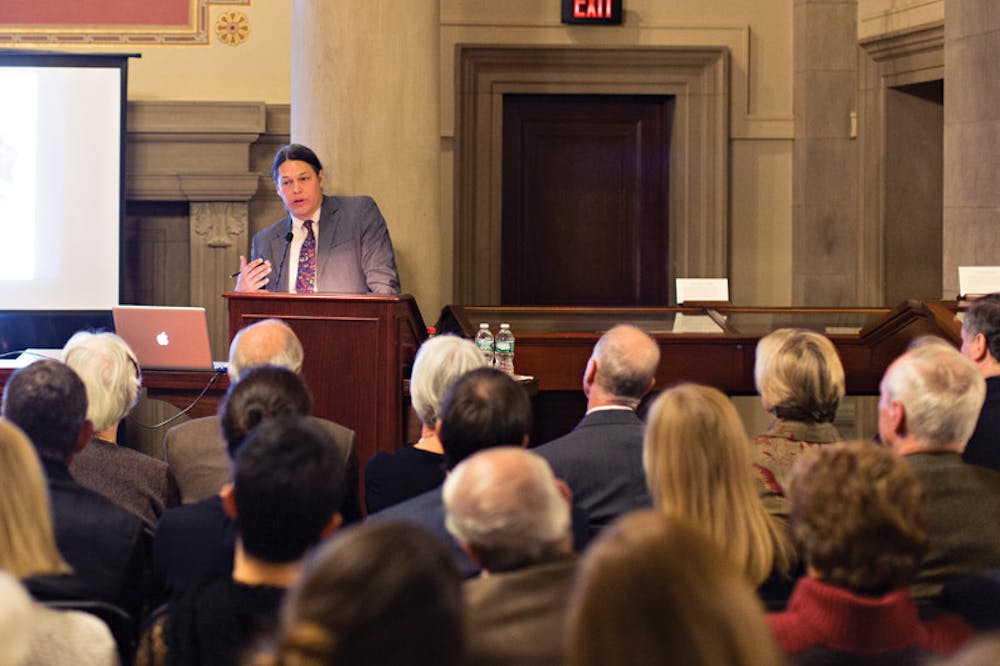Last fall, the words “the Third World will rise again” were scrawled in chalk on the side of the John Carter Brown Library.
The inscription, and the campus reaction it elicited, spurred the development of “The Earliest Americas: A New Initiative in Indigenous Studies at the John Carter Brown Library,” said Neil Safier, director of the John Carter Brown Library.
“It made me think that people believe that the JCB is a place that is repressing the Third World and upholding the First World at the expense of those who never had their histories properly told,” he said.
The goal of the newly minted initiative is to “offer the library as one of the resources and spaces where conversations can take place,” Safier said. “The library will be offering opportunities for students and scholars to come up with their own ideas for events, activities, lectures and symposia that will highlight materials we have at the library and talk about these issues in a broader way.”
The initiative launched Monday with an inaugural lecture by Yale historian Ned Blackhawk entitled “The Rediscovery of America: American Indians and the Unmaking of U.S. History.”
Blackhawk’s lecture advocated a rethinking of history by “exposing limitations in existing narratives,” he said. “We are now at a point in our nation’s history where we are really, for the first time, able to … rediscover America.”
“It is fitting that the inaugural lecture of the JCB’s Indigenous Studies Initiative occur on a day so fraught with contested historical meaning,” said Tyler Jackson Rogers ’12, a current PhD student in American studies at Yale and one of the speakers at the lecture, in reference to the event coinciding with Columbus Day.
Rogers also spoke about his personal experience at Brown as an indigenous student involved in the movement that formally ended the observance of Columbus Day at the University in April 2009.
“Faced with backlash from members of the campus and local communities, many of us involved in the campaign to end the celebration of Columbus Day at Brown were not satisfied with this ostensible victory,” he said. “Instead, we committed ourselves to ongoing education programming throughout the following years, cultivating conversations about why the nonobservance of Columbus Day matters to indigenous people today.”
“Having a Native historian was a good way of kicking off this initiative,” said Elizabeth Hoover MA’03 PhD’10, assistant professor of American and ethnic studies, who spoke at the lecture.
“A lot of what Ned’s work tries to do is to say that history wasn’t just initiated by Europeans and reacted to by indigenous people, but it’s being co-created by European and indigenous people reacting, responding and adapting to each other,” she said.
As part of the initiative’s next step, the library will host a roundtable discussion called “Native Americana: A Roundtable on Indigenous History and Memory” Tuesday at 4 p.m. The event will feature scholars and indigenous activists, and is open to members of the community.
“The JCB focuses on the colonial period, but I think its lessons can be relevant for more modern history and the contemporary world,” Safier told The Herald. “I want Native students and Native scholars to feel that the JCB is a willing and understanding partner in their own scholarly work and, to the extent possible, in their activist work.”

ADVERTISEMENT




